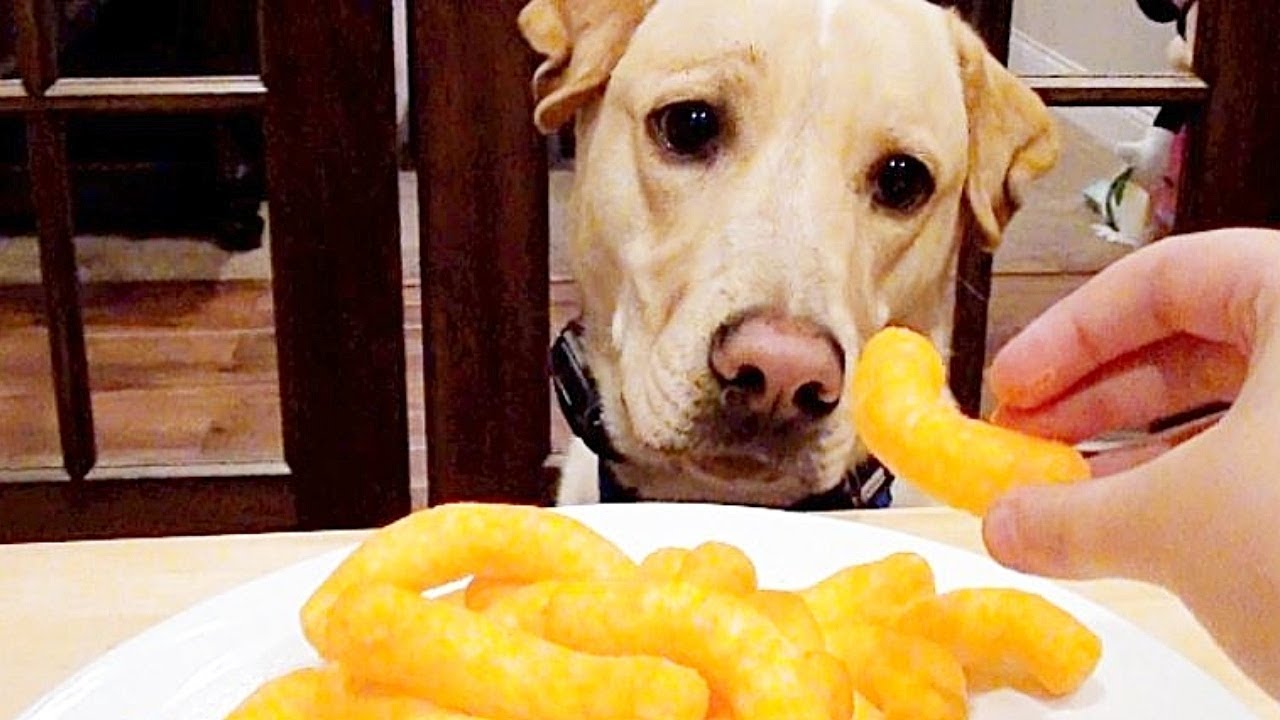Many pet owners ask the question, “Can dogs eat cheese puffs?”. A simple answer to this question is “Yes,” but it is not recommended.
We, like humans, enjoy our snacks, like Cheetos, pretzels, or chips. But they fall into the category of junk food, as they are high in calories, MSG, and saturated fats and do not add any nutritional value.
Dogs can eat cheese puffs in moderation, but as said earlier, it is not recommended. Natural cheese puffs are safer than the flavored ones, as they flavored cheese puffs may contain spices that aren’t safe for the dogs. Do not give more than one or two at a time, to minimize the effects of excessive salts and saturated fats.
Let’s go through the reasons why you should not give cheese puffs to your dog.
WHAT INGREDIENTS ARE IN THE CHEESE PUFFS?
Ingredients present in cheese puffs are not safe for dogs. Here is the list:
INGREDIENTS:
- Enriched cornmeal
- Canola Oil
- Vegetable Oil
- Maltodextrin
- Whey protein concentrate
- Cheese seasoning
- Natural and artificial flavors
- Yellow 6
- MSG
NUTRITIONAL VALUE OF CHEESE PUFFS
Cheese puffs have no nutritional value, just calories. The main ingredient of cheese puffs is enriched cornmeal cooked, and then it is covered with cheese seasoning, which is made of MSG, yellow no.6 coloring. They are not even good for humans.
WHY DOGS SHOULDN’T EAT CHEESE PUFFS
Cheese puffs are high in sodium and saturated fats, which are dangerous for dogs. Saturated fats are one of the leading factors in obesity, arthritis, diabetes, heart, and kidney disease.
SODIUM IS UNHEALTHY FOR YOUR DOG
The salt tolerance is very low in dogs. If they consume too much sodium (salt), it can cause a stroke, heart issues, and high blood pressure. If your dog consumes too much salt in one go, the effects can be life-threatening.
Too much salt can also cause hypernatremia, which can cause loss of appetite, fatigue, vomiting, changes in behavior, clumsiness, tremors, seizures, and excessive thirst.
IS MSG SAFE FOR YOUR DOG?
MSG or monosodium glutamate can triple the insulin levels of your dog even if taken in small amounts, which makes it very difficult for your dog to lose weight no matter how much exercise it is getting. MSG is used for intensifying flavors of the foods and is found in many human foods.
It can develop these symptoms in your dog: headaches, depression, mood changes, asthmatic reactions, reproductive dysfunction, irregular heartbeat, and nervous disorders.
BETTER ALTERNATIVE TO CHEESE PUFFS
Instead of cheese puffs, you can give your dog something that provides your pet nourishment, as a snack. Stick to treats that are made, especially for dogs or meat proteins.
Choose treats that do not contain any soy, corn, or any artificial ingredient.
CONCLUSION
Cheese puffs are not a recommended treatment, but one or two in a while shouldn’t do any harm if your dog is not allergic to the other ingredients.
If you keep monitoring the diet and lifestyle of your pet, it will ensure a long and healthy life for your dog. You must resist the urge to give your dog cheese puffs regularly, as they can cause harmful effects.

